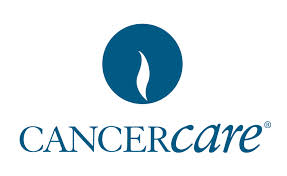 OAKLAND – What makes for the best cancer care? “A cancer diagnosis can be confusing, even overwhelming. That’s why it is important to know what to look for in a cancer program before you need it,” says Joanne Schottinger, MD, oncologist and clinical lead of cancer care for the Kaiser Permanente Care Management Institute. Consumers now can visit a new website — kp.org/cancercare — and learn more about how one health care system approaches cancer care differently.
OAKLAND – What makes for the best cancer care? “A cancer diagnosis can be confusing, even overwhelming. That’s why it is important to know what to look for in a cancer program before you need it,” says Joanne Schottinger, MD, oncologist and clinical lead of cancer care for the Kaiser Permanente Care Management Institute. Consumers now can visit a new website — kp.org/cancercare — and learn more about how one health care system approaches cancer care differently.
During a visit for a swollen knee, physician assistant Katherine Lewis noticed that Dale Gordon, a truck driver from California, was overdue for a colorectal screening, recommended by for everyone over the age of 50.
“I don’t think Katherine had any idea when she handed me that (screening) kit that it was going to save my life,” said Dale. “But it certainly did.”
His test results came back abnormal, and it was later found that he had colon cancer. Before Dale went into surgery, his doctor ordered a routine CAT scan of his abdomen, which revealed a large tumor outside his left kidney.
As Dale’s story shows, if you or a loved one faces cancer, a coordinated approach to care begins long before diagnosis and continues well after recovery. Kaiser Permanente launched kp.org/cancercare, available in both English and Spanish, to highlight the organization’s commitment to overcoming cancer through earlier detection, excellent personalized care delivered with compassion, leading-edge research and technology, and lifestyle coaching.
“Dale’s story is not unique,” says Dr. Schottinger, “which is why your health care provider should have an integrated approach to finding and treating cancer — your doctor, your pharmacist, your nurse, your oncologist, your entire care team working together with real-time, life-saving information.”
A 360-degree approach means:
A commitment to prevention – The earlier a cancer is detected, the better chances of survival can be. Kaiser Permanente is proactive in having its members screened for colorectal, cervical and breast cancer. In fact, the National Committee for Quality Assurance reports that breast cancer screening rates for female members at Kaiser Permanente are among the best in the nation.
A commitment for life – Survivorship after treatment is a crucial part of cancer care. Kaiser Permanente offers ongoing screenings, physical therapies, and spiritual and emotional support after cancer treatment. Classes and workshops (some may require a fee) are offered that explore techniques for coping and stress management, options for a healthy diet and exercise routines.




